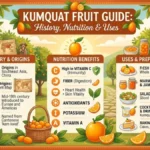Sunflowers, with their vibrant yellow petals and towering stalks, are a beloved symbol of summer and happiness. But did you know that these beautiful blooms can also offer some surprising nutritional benefits for our furry friends? That’s right – sunflower seeds have gained popularity as a nutritious snack for dogs. However, before you start sprinkling them over your pup’s meals or tossing them like treats, it’s important to understand the dos and don’ts of feeding sunflower seeds to your canine companion. In this article, we’ll unveil the truth about whether dogs can eat sunflower seeds and explore both the potential benefits and drawbacks. So grab a cup of tea (or a bowl of kibble) as we dive into the spotlight on sunflowers’ nutritional value for dogs!
Can Dogs Eat Sunflower Seeds?
Can dogs eat sunflower seeds? The answer is a resounding “sort of”! While sunflower seeds are not toxic to dogs, there are some important considerations to keep in mind before adding them to your pup’s diet.
First and foremost, it’s crucial to remember that moderation is key. Too many sunflower seeds can lead to weight gain and digestive issues for your furry friend. So, it’s best to offer them as an occasional treat rather than a regular part of their meals.
Another important factor is the preparation of the sunflower seeds. Dogs should never be fed the husks, as they can pose a choking hazard or cause blockages in their digestive system. Always make sure you remove the shells before offering these tasty morsels to your pooch.
Additionally, avoid giving your dog heavily salted or flavored sunflower seeds. Excessive sodium intake can be harmful and may lead to dehydration or kidney problems over time. Stick with plain, unsalted varieties whenever possible.
Never use sunflower seeds as a substitute for balanced dog food. While they do provide some nutritional benefits (which we’ll discuss later), they should always be given in addition to a complete and balanced diet specifically formulated for canine needs.
So now that you know the dos and don’ts when it comes to feeding your dog sunflower seeds, let’s explore the potential benefits these tiny treats can offer our four-legged friends!
Sort of – Here’s What to Know
Can dogs eat sunflower seeds? The answer is sort of – here’s what you need to know. While sunflower seeds can be a tasty and nutritious treat for your furry friend, there are some things to consider before feeding them.
It’s important to note that sunflower seeds should only be given in moderation as an occasional snack. They shouldn’t make up a large portion of your dog’s diet. Too many sunflower seeds can lead to weight gain or digestive issues.
When offering sunflower seeds to your dog, make sure they are unsalted and without any added seasonings. Salted varieties can be harmful to dogs, as excessive sodium intake can lead to dehydration and other health problems.
Another thing to keep in mind is that while the inner part of the seed (the kernel) is safe for dogs, the outer husk should not be consumed. The husks can cause blockages or choking hazards if swallowed whole.
If you’re considering introducing sunflower seeds into your dog’s diet, it’s always best to consult with your veterinarian first. They will be able to provide personalized advice based on your dog’s specific needs and dietary restrictions.
While dogs can enjoy the occasional treat of unsalted and unshelled sunflower kernels, it’s important not to overdo it. Moderation is key when it comes to incorporating any new food into your pet’s diet.
Don’ts for Feeding Your Dog Sunflower Seeds
When it comes to feeding your furry friend sunflower seeds, there are a few important “don’ts” to keep in mind. First and foremost, don’t feed them the husks! While the seeds themselves are safe and nutritious for dogs, the outer husks can be difficult for them to digest and may cause digestive issues.
Another key point to remember is not to give your dog too many sunflower seeds at one time. Moderation is key here, as an excessive amount can lead to stomach upset or even blockages in their gastrointestinal tract.
It’s also crucial not to use sunflower seeds as a substitute for your dog’s regular food. While they can be a healthy addition or treat, they should never replace a balanced diet specifically formulated for their nutritional needs.
Additionally, avoid feeding your pup heavily salted sunflower seeds. Excessive sodium intake can have negative effects on their health and contribute to conditions like dehydration or high blood pressure.
Always ensure that you’re providing fresh and uncontaminated sunflower seeds. Moldy or spoiled seeds can contain toxins that could harm your furry companion.
By keeping these “don’ts” in mind when offering sunflower seeds to your dog, you’ll help ensure their safety and well-being while still providing them with a tasty snack option!
Benefits of Sunflower Seeds to Your Dogs
Sunflower seeds offer several potential benefits for dogs when consumed in moderation. One major advantage is their high content of vitamin E, which acts as a powerful antioxidant and helps support your dog’s immune system. Additionally, sunflower seeds are a good source of B-complex vitamins, such as thiamine and niacin, which play a crucial role in maintaining your dog’s overall health.
Another benefit is the protein found in sunflower seeds. Protein is essential for muscle development and repair, making it an important component of your dog’s diet. Sunflower seeds also contain healthy fats that contribute to shiny coats and moisturized skin.
Furthermore, sunflower seeds provide linoleic acid, an omega-6 fatty acid that aids in promoting a healthy coat and skin while supporting proper brain function. The dietary fiber found in sunflower seeds can aid digestion by preventing constipation or diarrhea.
Moreover, these little kernels pack potassium – an electrolyte vital for maintaining proper nerve function – as well as magnesium and calcium that support strong bones and teeth.
Remember to always introduce new foods gradually into your dog’s diet to avoid any digestive issues or allergic reactions!
Potential Drawbacks of Sunflower Seeds For Your Dogs
While sunflower seeds can be a healthy snack for dogs when given in moderation, it’s important to be aware of some potential drawbacks. One such drawback is that sunflower seeds are high in fat. While dogs need fat in their diet, excessive consumption can lead to weight gain and even obesity.
Another potential drawback is that sunflower seeds are relatively high in calories. If your dog eats too many, it could contribute to an increase in calorie intake and potentially lead to weight issues.
Additionally, sunflower seeds contain linoleic acid, which is an essential fatty acid for dogs. However, too much linoleic acid can disrupt the balance of Omega-3 and Omega-6 fatty acids in their diet.
It’s also worth noting that some dogs may have trouble digesting sunflower seeds due to their high fiber content. This could result in gastrointestinal upset such as diarrhea or vomiting.
While rare, there is a risk of allergic reactions to sunflower seeds in some dogs. If you notice any signs of an allergic reaction like itching, hives, or difficulty breathing after feeding your dog sunflower seeds, consult with your veterinarian immediately.
Always remember to consult with your vet before adding any new food items into your dog’s diet and ensure moderation when offering them sunflower seeds as a treat!
In Case Your Dog Eats Too Many Sunflower Seeds
Accidents happen, and sometimes our furry friends can get a little carried away with their snacking. If your dog happens to gobble up too many sunflower seeds, it’s important to take action quickly. While sunflower seeds can be enjoyed in moderation, excessive consumption can lead to some unwanted consequences.
If you notice that your dog has eaten an excessive amount of sunflower seeds, monitor them closely for any signs of distress or discomfort. Keep an eye out for symptoms such as vomiting, diarrhea, or stomach upset. These could indicate that their digestive system is struggling to handle the excess intake.
To help alleviate any potential issues caused by overindulging in sunflower seeds, make sure your pup has access to plenty of fresh water. This will aid digestion and prevent dehydration.
If the situation doesn’t improve after a few hours or if you observe more severe symptoms like difficulty breathing or extreme lethargy, it’s crucial to contact your veterinarian immediately for further guidance and assistance.
Remember that prevention is always better than cure when it comes to our pets’ health. To avoid these situations altogether, ensure sunflower seeds are stored securely out of reach from curious noses!
Stay vigilant and mindful about what your dog consumes – keeping them safe and healthy should always be a top priority!
Conclusion
In the end, it’s clear that while dogs can eat sunflower seeds in moderation, there are important factors to consider. Sunflower seeds can provide some nutritional benefits for your furry friend, including vitamins and healthy fats. However, it’s crucial to follow certain guidelines to ensure their safety.
Avoid feeding your dog sunflower seed husks as they can be difficult to digest and may cause digestive issues. Additionally, refrain from giving them too many seeds at once or using them as a substitute for regular dog food. Dogs should also not consume heavily salted or spoiled sunflower seeds.
While sunflower seeds offer several health benefits like Vitamin E and B-Complex vitamins, protein, dietary fiber, potassium, magnesium, and calcium – they are high in fat and calories. Excessive consumption of linoleic acid found in these seeds may lead to adverse effects such as indigestion or allergic reactions.
To keep your pup safe and healthy when consuming sunflower seeds occasionally as a treat or training reward is fine but always do so in moderation.
Remember that each dog is unique with different nutritional needs – consult with your veterinarian before introducing any new foods into their diet.
So go ahead – let your dog enjoy the occasional sunflower seed treat responsibly!
FAQs (Frequently Asked Questions)
1. Don’t feed them the husks.
When giving your dog sunflower seeds, make sure to remove the husks first. The hard outer shell can be difficult for dogs to digest and may cause gastrointestinal issues if consumed in large quantities.
2. Don’t give them too many at one time.
While sunflower seeds can provide some nutritional benefits, moderation is key. Too many seeds at once can lead to an upset stomach or even a blockage in your dog’s digestive system.
3. Don’t use them as a dog food substitute.
Sunflower seeds should never replace a balanced diet for your furry friend. They are meant to be an occasional treat and should not be relied upon as a primary source of nutrition.
4. Don’t feed them heavily salted sunflower seeds.
Salted sunflower seeds may taste good to us humans, but they can be harmful to our canine companions. Excessive salt intake can lead to dehydration and other health problems in dogs.
5. Don’t feed them spoiled or moldy sunflower seeds.
Always check the quality of the sunflower seeds before offering them to your dog. Consuming spoiled or moldy seeds could result in digestive upset or other adverse reactions.
6. Don’t feed them raw sunflower seeds.
Raw sunflowers contain enzyme inhibitors that can interfere with digestion in both humans and animals alike. It’s best to opt for roasted or unsalted varieties when sharing this snack with your pup.
Vitamin B-Complex
Vitamin B-Complex plays a vital role in your dog’s overall health and well-being. This group of essential vitamins includes thiamine, riboflavin, niacin, pantothenic acid, pyridoxine, biotin, folic acid, and cobalamin (B12). Each of these vitamins has its own unique can dogs eat sunflower seeds functions in supporting various bodily processes.
Thiamine helps with energy metabolism and nerve function. Riboflavin is important for healthy skin and coat. Niacin aids in digestion and promotes a healthy nervous system. Pantothenic acid supports hormone production and the utilization of carbohydrates. Pyridoxine is necessary for brain development and function.
Biotin contributes to healthy skin, nails, and hair. Folic acid assists with cell growth and repair. Cobalamin (B12) is important for red blood cell formation.
By incorporating sunflower seeds into your dog’s diet – in moderation – you can provide them with a natural source of vitamin B-Complex. Just remember to keep their portion sizes small to avoid any potential drawbacks associated with excessive consumption or allergies.
Incorporating sunflower seeds into your dog’s diet as an occasional treat can be beneficial due to their nutritional value which includes Vitamin E also!
Protein
Protein is an essential nutrient for dogs, just as it is for humans. It plays a crucial role in the growth and repair of tissues, as well as the production of enzymes and hormones. Sunflower seeds are a good source of protein, making them a nutritious addition to your dog’s diet.
When it comes to protein content, sunflower seeds pack quite a punch. They contain all nine essential amino acids that dogs need to thrive. These amino acids cannot be produced by their bodies and must come from their diet.
Protein is especially important for active dogs or those who engage in regular exercise. It helps build and maintain lean muscle mass, keeping your furry friend strong and agile.
Additionally, protein aids in digestion and boosts your dog’s immune system. It supports healthy skin and coat too – two things every pet owner wants for their canine companion.
However, it’s important not to overdo it with sunflower seeds or any other high-protein food. Too much protein can put strain on your pup’s kidneys and lead to health issues down the road.
Healthy Fat
Sunflower seeds are a great source of healthy fats for dogs. Just like humans, dogs need fat in their diet to maintain optimal health. Healthy fats play a crucial role in providing energy, supporting cell growth and development, aiding nutrient absorption, and promoting hormone production.
One of the main types of healthy fat found in sunflower seeds is monounsaturated fats. These fats have been shown to help reduce inflammation and improve heart health. They can also support your dog’s immune system and contribute to a shiny coat.
In addition to monounsaturated fats, sunflower seeds also contain polyunsaturated fats such as omega-6 fatty acids. These essential fatty acids are important for brain function, skin health, and reproductive system maintenance.
Including sunflower seeds as part of your dog’s balanced diet can provide them with the necessary healthy fats they need for overall well-being. However, it’s important to keep portion sizes in mind since sunflower seeds are relatively high in calories.
Remember that moderation is key when it comes to feeding your dog any type of food or treat. Always consult with your veterinarian before making any changes to your dog’s diet or introducing new foods.
So go ahead and sprinkle some crushed sunflower seeds on top of your furry friend’s meal – they’ll not only add flavor but also provide those essential healthy fats!
Linoleic Acid
Linoleic Acid is one of the key nutrients found in sunflower seeds that can have a positive impact on your dog’s health. This essential fatty acid belongs to the omega-6 family and plays a crucial role in maintaining healthy skin and coat.
Dogs require linoleic acid for proper cell function and growth, as well as for the production of prostaglandins, which are important for regulating inflammation and immune response. It also helps to support a strong can dogs eat sunflower seeds immune system, ensuring that your furry friend stays healthy.
Including sunflower seeds in your dog’s diet can provide them with an adequate amount of linoleic acid. However, it’s important to note that balance is key when it comes to fatty acids. Too much omega-6 fatty acids without a sufficient intake of omega-3 fatty acids can lead to an imbalance in the body, potentially causing inflammation-related issues.
Always consult with your veterinarian before making any significant changes to your dog’s diet or introducing new foods rich in specific nutrients like linoleic acid. They will be able to guide you on proper portion sizes and help ensure that your pup gets all the necessary nutrients they need for optimal health!
Dietary Fiber
When it comes to a healthy diet, dietary fiber is an essential component. And the same goes for our furry friends! Dogs can benefit from consuming foods rich in dietary fiber, and sunflower seeds are no exception.
So, what exactly does dietary fiber do for your four-legged friend? Well, first and foremost, it aids digestion. Just like humans, dogs can experience constipation or irregular bowel movements. Including foods with adequate amounts of fiber in their diet can help regulate their digestive system.
Fiber also acts as a natural cleanser by promoting regularity and preventing the buildup of waste in their intestines. This means that sunflower seeds can not only keep your dog’s tummy happy but also contribute to overall gut health.
Additionally, dietary fiber provides a feeling of fullness without adding excess calories to your dog’s diet. This is especially beneficial if you’re trying to manage their weight or prevent them from overeating.
Not only does fiber support gut health and weight management, but it also plays a role in maintaining blood sugar levels. By slowing down the absorption of sugars into the bloodstream, dietary fiber helps prevent spikes and crashes in energy levels for your pup.
Incorporating sunflower seeds into your dog’s diet can provide them with these fantastic benefits while satisfying their taste buds too! However, always remember moderation is key when introducing any new food into your pet’s routine.
So go ahead – add some crunchiness to their meals with a sprinkle of sunflower seeds packed with valuable dietary fiber! Your furry friend will thank you later.
Potassium
Potassium, an essential mineral for dogs, plays a vital role in their overall health and well-being. This electrolyte helps maintain proper nerve function, muscle contractions, and heart rhythm. It also promotes healthy digestion and aids in the balance of fluids within your dog’s body.
A diet rich in potassium can benefit your furry friend in several ways. It is crucial for maintaining healthy blood pressure levels. Adequate potassium intake can help regulate blood pressure by counteracting the effects of sodium, which is often found in higher amounts in processed foods.
Furthermore, potassium supports optimal kidney function by promoting urine production and excretion of waste products from the body. This mineral also contributes to bone health by aiding calcium absorption.
While natural food sources like sunflower seeds contain good amounts of potassium beneficial for dogs when fed moderately, it’s important not to overdo it. Always consult with your veterinarian regarding appropriate portion sizes and ensure a balanced diet that includes other necessary nutrients as well!
Remember to prioritize variety and moderation when incorporating sunflower seeds or any other new food into your dog’s diet!
Magnesium
Magnesium is an essential mineral that plays a crucial role in your dog’s overall health and well-being. It is involved in numerous bodily functions, including nerve function, muscle contraction, and energy metabolism.
One of the key benefits of magnesium for dogs is its ability to support strong bones and teeth. Magnesium works alongside calcium and vitamin D to promote proper bone growth and development.
Additionally, magnesium helps regulate blood pressure levels in dogs by relaxing blood vessels and promoting better circulation. This can be particularly beneficial for older dogs or those with cardiovascular issues.
Furthermore, magnesium plays a vital role in maintaining healthy muscle function. It aids in muscle relaxation and prevents cramping or spasms. This can be especially helpful for active or athletic dogs who may can dogs eat sunflower seeds experience muscle fatigue or stiffness.
It’s important to note that while magnesium is necessary for optimal health, too much of it can have adverse effects on your furry friend. Always consult with your veterinarian before adding any supplements containing magnesium to your dog’s diet.
Calcium
Calcium is an essential mineral for dogs, just like it is for humans. It plays a crucial role in maintaining strong bones and teeth, as well as supporting proper muscle function and nerve transmission. So, can dogs get calcium from sunflower seeds?
While sunflower seeds do contain some calcium, they are not a significant source of this mineral compared to other foods such as dairy products or bone meal. However, every little bit counts when it comes to providing your furry friend with the nutrients they need.
In addition to promoting healthy bones and teeth, calcium also helps regulate blood clotting and enzyme activity in dogs. It’s important to ensure that your dog’s diet includes adequate amounts of calcium so that they can thrive and stay active.
If you’re looking to boost your dog’s calcium intake through their diet, consider incorporating other foods rich in this mineral such as yogurt or cheese (in moderation), leafy green vegetables like kale or broccoli, or even specially formulated dog food that contains added calcium.
Remember, though, it’s always best to consult with your veterinarian before making any major changes to your dog’s diet or introducing new foods. They can provide guidance tailored specifically to your pet’s needs and help ensure they are getting all the necessary nutrients for optimal health.
So while sunflower seeds may offer some benefits for dogs including vitamins and healthy fats, don’t rely on them alone as a sole source of calcium for your furry friend.
High in Fat
When it comes to sunflower seeds, one important thing to note is that they are high in fat. While fat is an essential nutrient for dogs, too much of it can lead to weight gain and other health issues. So, moderation is key when feeding your furry friend sunflower seeds.
It’s important to remember that not all fats are created equal. Sunflower seeds contain healthy fats like omega-6 fatty acids, which can actually be beneficial for your dog’s skin and coat health. However, excessive consumption of these fats can still contribute to weight gain.
To ensure you’re not overdoing it with the fat content, limit the amount of sunflower seeds you give your dog as a treat or topping on their food. It’s always best to consult with your veterinarian about appropriate serving sizes based on your dog’s specific needs and dietary requirements.
By being mindful of the fat content in sunflower seeds and monitoring your dog’s overall calorie intake, you can safely incorporate this nutritious snack into their diet without causing any negative effects on their health. Just remember that balance is key!
Relatively High Calories
When it comes to feeding our furry friends, keeping an eye on their calorie intake is crucial for maintaining a healthy weight. Sunflower seeds are known for their relatively high caloric content, so it’s important to be mindful of how many you give to your dog.
While sunflower seeds offer numerous nutritional benefits, they can also pack a punch in terms of calories. Just a small handful can contain quite a significant amount of energy. This means that if you’re not careful, overfeeding can dogs eat sunflower seeds your pup with these tasty treats could contribute to weight gain and potential health issues down the line.
It’s essential to consider your dog’s overall diet and activity level when incorporating sunflower seeds into their meals or snacks. Moderation is key here – offering them as an occasional treat rather than a daily indulgence will help keep those extra calories at bay.
Remember, every dog has different needs and can dogs eat sunflower seeds metabolism rates, so consulting with your veterinarian about the appropriate portion sizes for your furry friend is always a good idea.
By being mindful of portion control and monitoring your dog’s overall calorie intake from all sources, including sunflower seeds, you can ensure that they enjoy this nutritious snack without tipping the scale too much!
Too Much Linoleic Acid
Linoleic acid is an essential omega-6 fatty acid that plays a vital role in maintaining your dog’s overall health. Sunflower seeds are known to be high in linoleic acid, which can be beneficial for dogs when consumed in moderation. However, it’s important to note that too much linoleic acid can have potential drawbacks for your furry friend.
Excessive intake of linoleic acid may disrupt the balance between omega-3 and omega-6 fatty acids can dogs eat sunflower seeds in your dog’s diet. This imbalance can lead to inflammation and other health issues can dogs eat sunflower seeds such as allergies or skin problems.
While sunflower seeds provide a good source of healthy fats for dogs, it’s crucial to monitor their intake. Too much linoleic acid from these seeds could upset the delicate nutritional equilibrium necessary for optimal canine well-being.
To ensure you’re not overdoing it with linoleic acid, speak with your veterinarian about appropriate serving sizes and how they fit into your dog’s overall dietary needs.
Risk of Indigestion
Feeding your dog sunflower seeds in moderation can be a healthy addition to their diet. However, it’s important to be aware of the potential risk of indigestion. Dogs have different digestive systems than humans, and some dogs may struggle with digesting certain foods.
When it comes to sunflower seeds, the high fat content can sometimes lead to digestive issues for dogs. Excessive consumption of these fatty seeds can cause an upset stomach, diarrhea, or even pancreatitis in some cases.
To prevent the risk of indigestion, it’s crucial to feed your dog sunflower seeds in moderation and as part of a balanced diet. Always consult with your veterinarian before introducing new foods into your dog’s diet, especially can dogs eat sunflower seeds if they have any underlying health conditions.
If you notice any signs of indigestion after feeding your dog sunflower seeds, such as vomiting or abdominal discomfort, it’s best to stop giving them these treats and seek veterinary advice.
Remember that every dog is unique and may react differently to certain foods. Monitoring their response and making adjustments accordingly will help ensure their overall well-being.
Risk of Allergic Reaction
Allergies are not exclusive to humans, as dogs can also experience allergic reactions. While sunflower seeds are generally safe for dogs, it’s important to be aware of the potential risk of an allergic reaction.
Some dogs may have a sensitivity or allergy to sunflower seeds, which can lead to symptoms such as itching, redness, hives, swelling, and even difficulty breathing. If you notice any of these signs after feeding your dog sunflower seeds or any other food containing them, it’s crucial to seek veterinary advice immediately.
It’s worth mentioning that allergies can develop over time and may not present themselves until after repeated exposure. Therefore, if your dog has never had sunflower seeds before but starts showing signs of an allergic reaction after consuming them for the first time, discontinue their consumption and consult with your vet.
Remember that every dog is unique and may react differently to certain foods. It’s always best to introduce new foods gradually and monitor your dog closely for any adverse effects.
Sodium
Sodium, while an essential mineral for our bodies, can be problematic when it comes to our furry friends. Dogs have different sodium requirements than humans, and too much of it can lead to health issues.
Excessive sodium consumption can cause dogs to become dehydrated, as it increases their thirst and leads to excessive water intake. This can put a strain on their kidneys and potentially lead to kidney damage can dogs eat sunflower seeds or failure.
Additionally, high levels of sodium in a dog’s diet can contribute to the development of hypertension (high blood pressure). Just like in humans, this condition puts extra stress on the heart and organs.
It’s important to note that many commercially available sunflower seeds are typically salted. While small amounts of salt may not be harmful for dogs, excess salt intake should be avoided. Too much sodium from salted sunflower seeds could potentially lead to electrolyte imbalances or even toxicity in your furry companion.
To keep your dog healthy and safe, it’s best to avoid feeding them heavily salted sunflower seeds altogether. Instead, opt for unsalted varieties if you want to offer them as a treat – but always in moderation!
Remember: When considering adding any new food item into your dog’s diet – including sunflower seeds – consult with your veterinarian first!
Steps to Make Your Dog Vomit
If your dog has ingested too many sunflower seeds or any other potentially harmful substance, it may be necessary to induce vomiting. However, before proceeding with these steps, it is important to consult your veterinarian for guidance and confirmation that inducing vomiting is appropriate in your specific situation.
Step 1: Act quickly. Time is of the essence when dealing with a potential poisoning incident. The sooner you take action, the better chance you have of successfully removing the harmful substances from your dog’s system.
Step 2: Hydrogen peroxide solution. This method involves administering a small amount (usually one teaspoon per ten pounds of body weight) of hydrogen peroxide to your dog orally. It can help stimulate vomiting within 5-10 minutes.
Step 3: Observe closely. Keep a close eye on your dog after administering the hydrogen peroxide solution. They should start retching and expelling the contents of their stomach within a short period of time.
Step 4: Contact your vet. After making sure your dog has vomited appropriately, contact your veterinarian for further advice and instructions on how to proceed.
Remember, inducing vomiting should only be done under professional supervision and as a last resort in emergency situations involving potential toxin ingestion in dogs.
Conclusion
Sunflower seeds can be a nutritious and tasty addition to your dog’s diet when fed in moderation. They are rich in essential nutrients like vitamin E, B-complex vitamins, protein, healthy fats, linoleic acid, dietary fiber, potassium, magnesium, and calcium. These nutrients can support your dog’s overall health and well-being.
However, there are some potential drawbacks to consider. Sunflower seeds are high in fat and relatively high in calories. Feeding your dog too many sunflower seeds can contribute to weight gain or digestive issues. Additionally, the high levels of linoleic acid may not be suitable for dogs with certain health conditions.
It is important to follow some guidelines when feeding your can dogs eat sunflower seeds dog sunflower seeds. Avoid giving them the husks as they can pose a choking hazard or cause intestinal blockage. Do not give them heavily salted or spoiled/moldy sunflower seeds as they can be harmful to their health.
If you suspect that your dog has eaten too many sunflower seeds or is experiencing any adverse effects after consuming them, it is best to consult with a veterinarian for guidance.
Remember that while sunflower seeds can offer nutritional benefits for dogs when given appropriately, they should never be used as a substitute for a balanced canine diet.
Always prioritize your furry friend’s safety and well-being by providing them with appropriate portions of food specifically formulated for their needs.
So go ahead and share this information with other pet owners who might have questions about feeding their dogs sunflowers safely!
Also Read: Understanding the Importance of Electrolytes for Your Dog’s Health.











